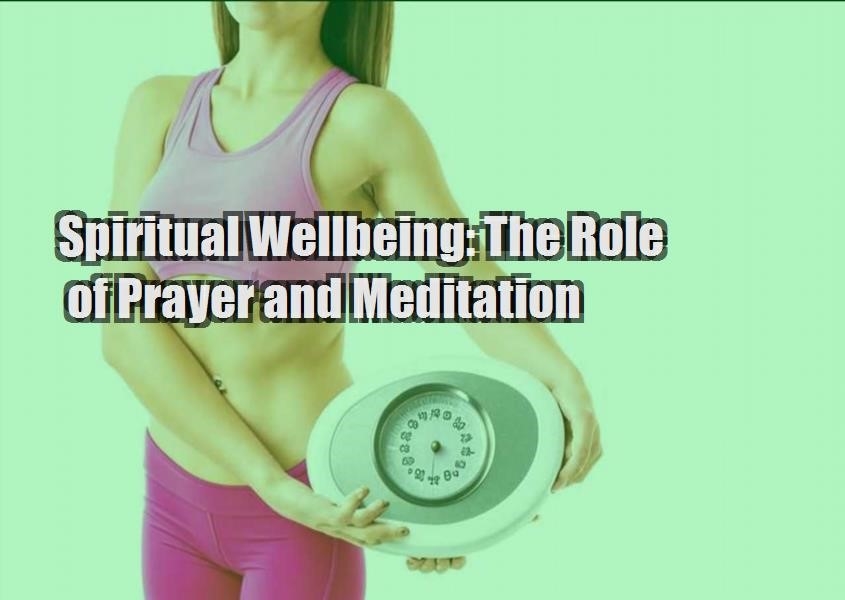Spiritual wellbeing is a vital aspect of overall health and wellness. It encompasses a sense of purpose, meaning, and connection to something greater than oneself. While there are various spiritual practices, prayer and meditation have been widely recognized for their profound impact on spiritual wellbeing.
Prayer
Prayer is a form of communication with a higher power or deity, often used to express gratitude, ask for guidance, or seek spiritual healing. It can take different forms, such as:
- Silent prayer: Contemplative reflection and inner dialogue with a higher power.
- Vocal prayer: Spoken or sung words directed towards a deity or spiritual being.
- Intercessory prayer: Praying on behalf of others or for specific events or causes.
Benefits of Prayer:
- Promotes a sense of connection to something greater than oneself.
- Reduces stress, anxiety, and depression.
- Fosters hope, optimism, and resilience.
- Provides emotional support and comfort during difficult times.
- Enhances self-awareness and personal growth.
Meditation
Meditation is a practice that involves focused attention and relaxation, often used to cultivate inner peace and clarity. There are various meditation techniques, including:
- Mindfulness meditation: Paying attention to the present moment without judgment.
- Transcendental meditation: Using a mantra or specific thought to focus the mind.
- Guided meditation: Following verbal instructions to visualize or focus on a particular experience or outcome.
Benefits of Meditation:
- Reduces stress and anxiety.
- Improves focus, attention, and memory.
- Promotes emotional regulation and self-control.
- Increases self-awareness and self-compassion.
- Fosters a sense of inner peace and contentment.
The Interconnection of Prayer and Meditation
Prayer and meditation are complementary practices that can enhance each others benefits. While prayer focuses on communication with a higher power, meditation cultivates inner stillness and receptivity.
Combining the two practices can:
- Deepen spiritual awareness and connection.
- Foster a sense of gratitude and reverence.
- Promote a balance between external devotion and internal reflection.
- Facilitate spiritual transformation and growth.
Practical Applications
Incorporating Prayer and Meditation into Daily Life:
- Establish regular prayer times: Set aside specific moments in the day for prayer, such as mornings, evenings, or before meals.
- Create a dedicated prayer space: Designate a quiet and sacred area for prayer and reflection.
- Use guided meditations: Utilize online or pre-recorded guided meditations to enhance focus and intention.
- Practice mindfulness in everyday activities: Pay attention to your surroundings, sensations, and thoughts without judgment.
Benefits for Specific Groups:
- Children and adolescents: Prayer and meditation can provide a sense of comfort, security, and guidance during formative years.
- Older adults: These practices can promote mental and emotional health, reduce isolation, and enhance spiritual well-being.
- Individuals with chronic illnesses: Prayer and meditation can provide solace, coping mechanisms, and spiritual support during difficult times.
- People in recovery: These practices can facilitate self-reflection, forgiveness, and a renewed sense of purpose.
Conclusion
Spiritual wellbeing is essential for overall health and happiness. Prayer and meditation are powerful tools that can foster a deep connection to something greater than oneself, reduce stress, and promote inner peace. By incorporating these practices into our daily lives, we can cultivate a more fulfilling and meaningful spiritual experience.







